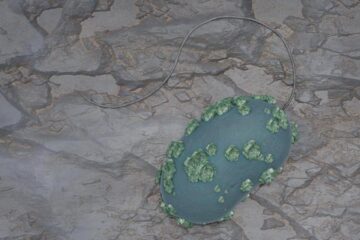Fungi found to be effective natural control agents

A biological process using three different types of fungi to control common plant diseases and mite pests has been developed by researchers at the Hebrew University’s Faculty of Agricultural, Food and Environmental Quality Sciences in Rehovot.
Use of these fungi enables crops to overcome such plant diseases and pests without having to apply environmentally-polluting chemicals, said Abraham Sztejnberg, the Hebrew University’s Francis Ariowitsch Professor of Agriculture, a member of the research team. The fungi have been found to be effective in controlling plant mites (a pest relative of spiders) and powdery mildew diseases, both of which cause widespread damage to field crops, flowers and fruit trees.
Prof. Sztejnberg, born in Chile and a graduate of the Hebrew University, said billions of dollars are spent annually in developed countries for controlling mites and powdery mildews with chemical pesticides. Nevertheless, members of the two damage-causing groups have been able to develop resistance to these counter-measures, making it necessary to often change the pesticides – thus adding even more to the costs.
The effectiveness of the three fungi was discovered in joint research involving scientists at the Hebrew University and others in Holland and Florida. Prof. Steinberg, of the Hebrew University’s Department of Plant Pathology and Microbiology heads the team, which also includes, from the Hebrew University, Prof. Uri Gerson of the Department of Entomology, Aviva Gafni and Zahi Paz. The foreign participants were Dr. Teun Boekhout of the Centraal Bureau voor Schimmelcultures, Utrecht, Holland, and Dr. G. Scorzetti of the Rosenstiel School of Marine and Atmospheric Sciences, Key Biscayne, Florida.
The fungi used by the scientists are newly-discovered genera and species which have only recently become known to scientists. They are natural entities that have not been transformed by genetic engineering. They were identified by morphological, biochemical and molecular biology techniques. Their unique anti-mite and anti-powdery mildew qualities were demonstrated in laboratory and field work
The importance of the discovery lies in the fact that this is a biological means of plant disease and pest control which does not cause environmental damage to the soil, say the scientists. The development is the outgrowth of a long-term research project, including a master’s degree project carried out by Hebrew University student Zachi Paz, under the supervision of Professors Sztejnberg and Gerson.
A report on the research will appear in the July 2003 issue of the International Journal of Systematic and Evolutionary Microbiology.
The research is continuing, and many additional aspects are being explored. A patent has been applied for through the Yissum Research Development Company of the Hebrew University, and business contacts have been made with a view to commercialization.
Media Contact
All latest news from the category: Agricultural and Forestry Science
Newest articles

Oxygen vacancies mediated ultrathin Bi4O5Br2 nanosheets
… as efficient piezocatalyst for synthesis of H2O2 from pure water. As an important chemical raw material, hydrogen peroxide (H2O2) is widely applied in various aspects of industry and life….

Uranium-immobilizing bacteria in clay rock
Microbial reduction reduces mobility of uranium compounds. When designing repositories for high-level radioactive waste in deep geological layers, various factors must be carefully considered to ensure their long-term safety. Among…

6G mobile communications tested in the Alps
Researchers at the University of Stuttgart achieve strongest connection. Making emergency calls even in remote areas and transmitting large amounts of data in real time? This is possible with the…





















